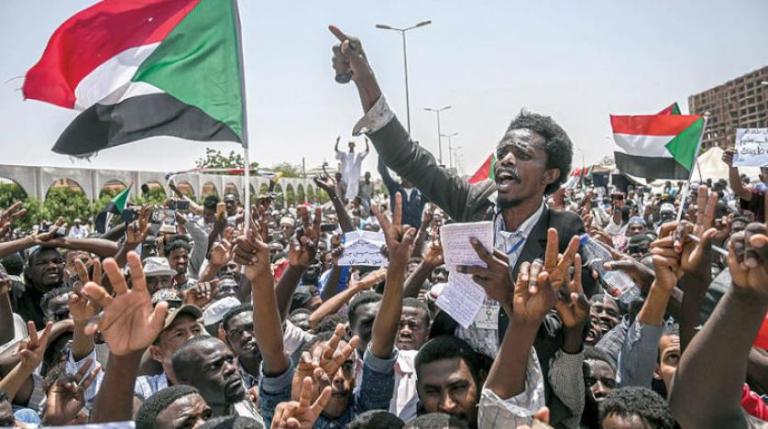Military council works in fact to keep power, says Sudan’s opposition

May 8, 2019 (KHARTOUM) – The Sudanese Transitional Military Council (TMC) says they want to transfer power to civilians but in fact, their deeds show they want to keep power for themselves, said a spokesperson of the opposition coalition on Wednesday.
The Freedom and Changes forces held a press conference to respond to the reservations made by the military council on their draft constitutional document which proposes a four-year transitional period led by a civilian government.
The TMC said the draft document didn’t specify that the Islamic legislation was the sources of laws. But also gave all the powers to the transitional cabinet including the declaration of the state of emergency.
A spokesperson for the Freedom and Change forces Madani Abbas Madani told reporters that discussions between the two sides should be focused on the power transfer, pointing that it responds also to what the military council said willing to do.
“But in fact, the military council want to control the sovereignty council which should have the right to form the executive power and to dissolve it, the legislative assembly and to dissolve it, appoint ambassadors and to declare war,” Madani said.
“All that means they do not want to transfer power, in fact,” he said before to add “They do not want a civilian government but executive secretaries”
In addition, he regretted that the TMC continues to “correct” their papers and never submit alternative structures for the transitional period.
Also, he condemned the “ideological blackmailing” by the military council stressing that the draft they presented was not a constitutional bill but a draft document for the transitional period.
“The sources of laws are part of the constitution not a temporary text to manage the transitional period,” he said pointing that the responses of the Council to their proposals had been prepared by the “former regime partisans” at the Office of the Attorney General in Khartoum.
During his speech to the Sudanese on 13 April, Abdel Fattah al-Burhan, the head of the transitional military council vowed to hand over power to a civilian power after a two-year transitional period.
“During this period or at its end will take place the power handover to a civil government formed by the people,” he said at the time before the African Union warning to suspend Sudan’s members at the regional body.
Omer Khalid of the Sudanese Congress Party (SCoP) warned that the opposition groups are ready to escalate popular protests and increase pressures on the military if they are not willing to reach a negotiated agreement with them.
The escalation will be through the continuation of the sit-in in Khartoum and throughout Sudan, the civil disobedience and the general strike,” Khalid said.
“However, the preferred option is to spare the country confrontation and reach an agreement to transfer power to civilians who express the forces of revolution, but if all roads are closed before these solutions, we will have only the path of revolution,” he stressed.
(ST)
